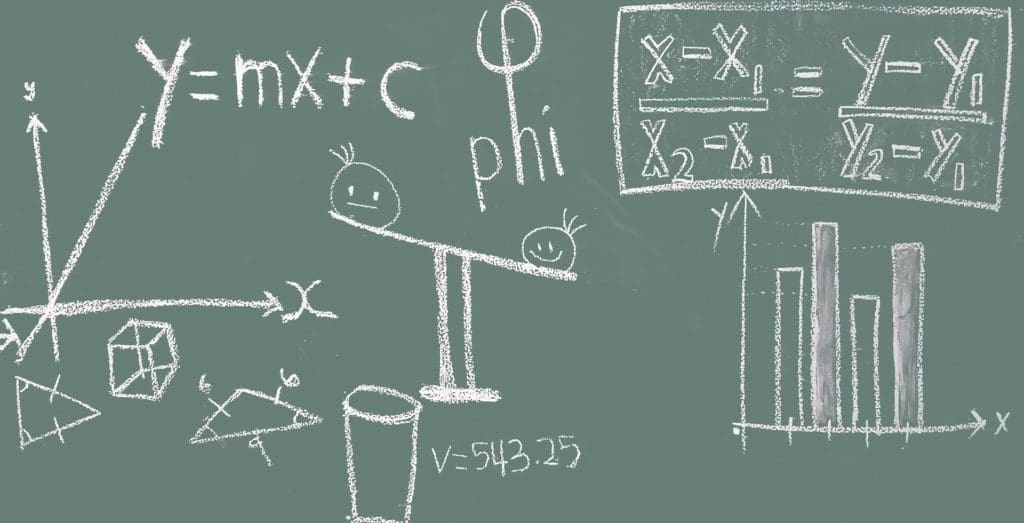The one thing I hear a lot and which irks me so, is “What’s the point of learning this?”
I usually hear it when I start teaching a new student, and it’s usually a young student as the more mature students are choosing to learn. Also, they only tend to say it once; after I give them a lecture on it, they don’t say it again.
When I first started teaching, I never really knew how to respond to a teenager saying something along the lines of, “What’s the point in learning about all this trigonometry when I’m never going to use it in the future?” I used to try and argue the point that maybe architects would use trigonometry to work out angles but it wasn’t a very good answer to their question.
I love learning about everything and I love exploring obscure topics for no reason other than to learn about them. I enjoy learning with no purpose. I like to know about everything and I find learning a form of entertainment.
I remember reading an article many moons ago. It was an interview with Nigella Lawson in which she spoke about studying medieval languages at university. The interviewer asked mockingly, “Have you had much call for Latin or Greek in your career?” She responded by saying something along the lines of, “What a vulgar way to look at education.”
Nowadays, children in schools, particularly secondary schools question everything they learn. I think this is a good thing as it’s a good way to explore education. Children always try and find a reason for learning something and if there isn’t one, it’s considered a waste of time. There’s good and bad to this. The bad part is that education is becoming a means to an end. It’s purely a way to gain a job. The society we live in gears the whole school experience as a route into a career rather than as an experience in learning. Children do things because it will look good on their CVs and not because they like to do it.
On the other hand, when children say to me, “What’s the point in learning this?” it gives me the opportunity to start my lecture. I always say that from the ages of 4 to 21, we are in school, college and university. We have no responsibilities other than to learn. We have no mortgage to pay, no kids to feed, no bills to pay; the only job we have to do is learn as much as we can about everything.
We can look at education in two ways. Firstly is the “means to a career” way; the more we learn, the more we can do, the more we can do, the more we can earn. It’s easier to find work if we’re good at lots of things. If we can show potential employees that we’re proficient in a range of disciplines, then we’re more likely to get hired.
Secondly, different subjects require different skills from us. In everyday life, the most advanced maths we’ll need is adding, subtracting and maybe working out a percentage. At school, we can learn that in a few lessons. So, why do we need to bother with Pythagoras’ theorem, trigonometry and algebra if we’re never going to use it? Well, those sorts of topics train our brain to become analytical and they enhance our skills in finding solutions to problems. They teach us to look at all the facts before finding a solution. Studying poetry and great literature not only shows us how to appreciate these art forms but it gives us an insight into how powerful language can be at getting people to do what you want. You can control people’s emotions with a simple sentence used in a particular way. Studying religion gives us a way of understanding differing opinions. We start to understand where people’s view points come from.
When we learn, we grow in more than just the obvious way. We tap into areas of our consciousness and figure out ways to use our brain. We improve our memories and we use things we learn in one subject to help us in another. Learn, learn, and learn some more, is what I always tell my students, no matter how old they are. Life is easier the more you can do and the more you can understand.
I’m so lucky that I teach a vast range of people from 4 years old to 80 years old, from school kids to lawyers, from builders to doctors, other teachers, housewives and hairdressers. I learn so much from them, just by listening to them talk about themselves. No matter whom I teach, they always say they wished they’d listened more in school and learnt and understood more. People say the things that have given them the most opportunities and opened the most doors in life are the random things they learnt. One nurse I used to teach got a great opportunity to run a clinic in Spain simply because she spoke a smattering of Spanish.
I have been given so many opportunities because of all the random things I can do. So, when you wonder what the point of learning something is, it’s because you never know where it might take you or what it might lead to.
On another note, if you want to try out my language books “3 Minute Languages”, you can get them on Amazon Kindle by clicking here.

